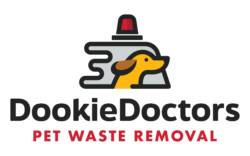
Keeping a happy and healthy pet goes beyond food, water, and exercise. One crucial yet often overlooked responsibility of pet ownership is managing pet waste. Neglecting this task doesn’t just impact your yard’s aesthetic—it poses real risks to your pet’s health, the environment, and even your community. This article highlights the hidden dangers of pet waste and offers actionable steps for maintaining a clean yard.
Why Managing Pet Waste Is Essential
Pet waste isn’t just an unpleasant inconvenience; it’s a serious health and environmental concern. Left unchecked, it can expose your pet to harmful parasites and diseases, pollute soil and water, and even create hazards for your community. Addressing this issue proactively protects not just your pet but also the world around you.
Health Risks Associated with Unsanitary Conditions
Allowing pet waste to accumulate in your yard can create unsanitary conditions with direct consequences for your pet’s health. Here’s how it can harm them:
- Parasite Exposure: Roundworms, hookworms, and whipworms often lay their eggs in pet feces. If ingested accidentally, these parasites can cause diarrhea, weight loss, and severe internal damage in pets.
- Disease Transmission: Harmful bacteria such as E. coli and Salmonella, commonly found in pet feces, can infect both animals and humans.
- Skin Issues: Pets running or playing in contaminated yards are at risk of developing infections or skin irritations from waste exposure.
Even a single pile of pet waste in the wrong spot can become a breeding ground for health hazards.
Common Parasites and Diseases Found in Pet Waste
Pet waste contains an array of pathogens you’ll want to keep away from your furry friends:
- Giardia and Cryptosporidium thrive in moist waste and cause gastrointestinal distress in pets.
- Roundworms, carried by nearly every animal species, can remain viable in soil for months, waiting for an unsuspecting animal to step on or ingest contaminated material.
- Toxoplasmosis, more commonly associated with cat feces, can infect dogs and other animals through indirect contact.
Reducing your pet’s exposure to these pathogens starts with keeping a clean yard.
Environmental Impact of Pet Waste
Pet waste isn’t just harmful while fresh—it has a lasting impact on the environment:
- Contaminates Water Sources: When rain washes pet waste into storm drains, it carries harmful bacteria and nutrients to local water bodies, triggering algae blooms that harm aquatic life.
- Degrades Soil Quality: Unlike livestock manure, pet waste does not act as a fertilizer. Instead, it increases the nitrogen content in the soil, potentially harming plants and grass.
Small changes in pet waste management can significantly improve the health of local ecosystems.
Tips for Responsible Pet Waste Disposal
Proper management of pet waste isn’t difficult but requires consistent effort. Here are simple steps to keep your yard clean and your pet healthy:
- Pick Up Daily: Scoop waste right after your pet does their business to minimize exposure to harmful pathogens.
- Invest in Waste Disposal Tools: Use biodegradable bags or a pooper-scooper to make cleanup easy and environmentally friendly.
- Designate a Disposal Area: Consider setting up a pet waste compost system designed specifically for pet feces, or dispose of it in a secure trash bin.
- Maintain Your Yard: Trim grass often and fill in low areas where water—and waste—might collect.
The Role of Pet Owners in Maintaining a Clean Yard
Being a responsible pet owner means caring for your pet’s health while respecting the environment and your community. A clean yard reduces your pet’s risk of infection, preserves local ecosystems, and keeps your home pleasant for everyone. If you share public spaces like parks, always pick up after your pet and encourage others to follow suit.
Benefits of Regular Vet Checks and Preventive Care
Routine vet visits are crucial for disease prevention, especially if your pet frequently explores shared or unsanitary environments. Your veterinarian can help with:
- Parasite Prevention: Administering dewormers and recommending preventive medications.
- Health Screenings: Identifying early signs of infection from potential exposure to pathogens.
- Vaccinations: Ensuring your pet is protected against diseases like leptospirosis that can spread through contaminated water or feces.
Prevention is always easier—and cheaper—than treatment.
Encouraging Community Efforts
Keeping public spaces clean is a collective responsibility. Most cities offer convenient pet waste stations in parks and neighborhoods—be sure to use them. Joining or forming a community group to promote pet waste management can help ensure cleaner yards and parks for everyone’s pets to enjoy. An educated and active community fosters a healthier, happier environment for all.
Why a Clean Yard Matters for Your Pet’s Health
The connection between a clean yard and your pet’s health is undeniable. Managing pet waste keeps harmful parasites and diseases at bay, protects local ecosystems, and cultivates a safer community for all. By staying proactive and consistent, you provide your furry friends with their best chance for a happy, healthy life.
Take charge of your pet’s environment today—because every scoop counts. Your pet (and everyone else) will thank you!
Learn more about Dookie Doctors Pet Waste Removal serving the Pittsburgh, PA area. Contact us for a quote.
